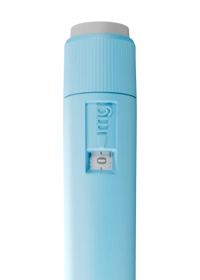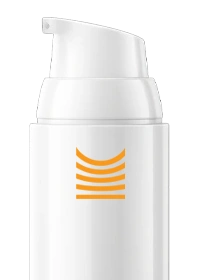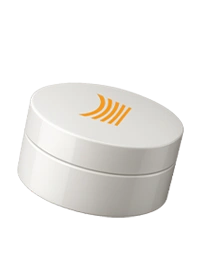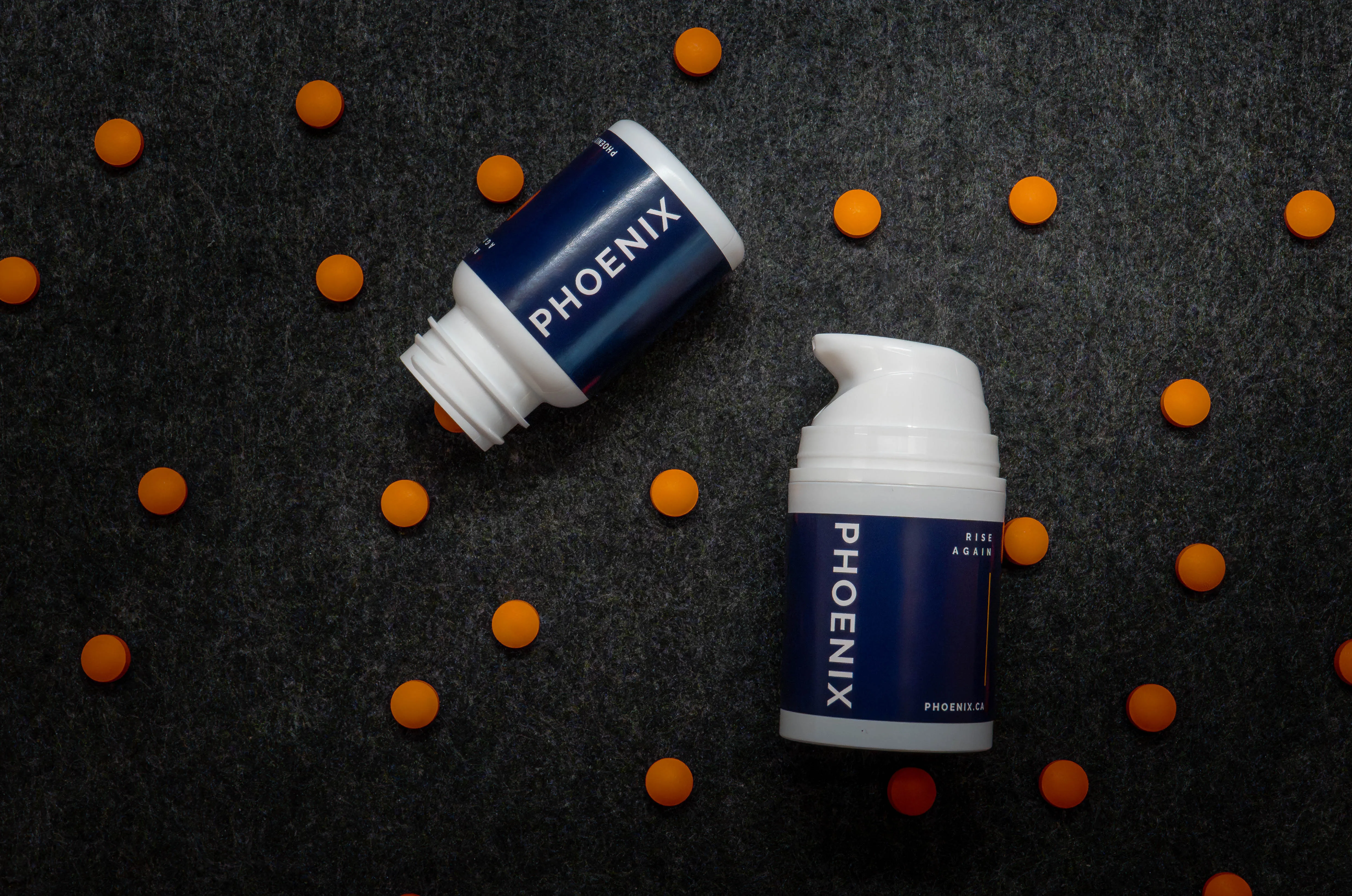
Foods That Reduce DHT & Fight Men’s Hair Loss Naturally | Phoenix
- Jump to a Section:
If you're experiencing hair loss, chances are you've read around on the internet about DHT and how it's implicated in balding. DHT plays a major role in hair loss, and it's a complicated one.
First of all, DHT is not some evil hormone that's just floating around, waiting to attack your follicles and cause you to lose your hair. It's actually a very important hormone that's responsible for many important functions in your body. It's an androgenic hormone, which means it's an important hormone related to male characteristics.
In the skin, DHT is involved in the formation of male facial and body hair, and it's also involved in the development of the prostate gland. DHT is an important hormone for male sexual development, and it's also an important hormone for the correct development of the penis.
When it comes to hair loss, DHT is a culprit. DHT is a by-product of testosterone, and it's produced in the skin and the prostate gland. In the skin, DHT causes the miniaturization of hair follicles. In the prostate gland, DHT is responsible for enlarging the prostate. In both cases, DHT causes these changes by binding to receptors on the cells in the skin and the prostate gland.
What is DHT? (Dihydrotestosterone)
DHT is a hormone called dihydrotestosterone. It's an androgenic hormone, which means it's a hormone that promotes male characteristics. Androgens like testosterone and DHT are important in the development of male sexual features like facial and body hair and the prostate gland.
DHT is a by-product of testosterone. In the body, enzymes convert testosterone into DHT. It's important to note that while DHT is a byproduct of testosterone, it's not biologically inactive.
DHT is actually three to five times more potent than testosterone in terms of its activity in the body. It's also important to note that it takes more testosterone to produce a given amount of DHT than it takes to produce a given amount of testosterone.
What Are the Causes?
Both men and women produce DHT, but the levels of DHT tend to be higher in men than in women. DHT is a by-product of testosterone production. In order for testosterone to be produced, it has to go through two processes.
First, testosterone goes through a 5-alpha-reduction process to become dihydrotestosterone. Next, dihydrotestosterone goes through a 17-beta-hydroxylation process to become DHT. Both of these processes are enzymes that convert testosterone into DHT.
There are two enzymes responsible for these conversions in the body. 5-alpha-reductase is the enzyme responsible for the 5-alpha-reduction process of testosterone. And 17-beta-hydroxysteroid dehydrogenase is the enzyme that's responsible for the 17-beta-hydroxylation of dihydrotestosterone.
Now, the word "enzyme" is a scientific word for a protein. So, what do enzymes do? Enzymes are responsible for catalyzing reactions in the body. A reaction is a process in which one or more substances undergo a change. In the body, enzymes are responsible for catalyzing the conversion of substances.
In the case of DHT, enzymes are responsible for converting testosterone into DHT. So what determines how much DHT is produced in the body? Well, there are a few things that determine how much DHT is being produced in the body.
The first thing is the levels of testosterone in the body. The higher the testosterone levels, the more DHT will be produced. The second thing is the levels of 5-alpha-reductase and 17-beta-hydroxysteroid dehydrogenase in the body.
The higher the levels of these enzymes, the more testosterone will be converted into DHT. The third thing is the levels of sex hormone binding globulin in the body. Sex hormone binding globulin is a carrier protein that binds to sex hormones like testosterone and DHT.
The more sex hormone binding globulin that's available, the more testosterone will be bound to it and the less DHT will be produced. So in order to increase the levels of DHT in the body, we need to increase the levels of testosterone.
What Does Diet Have To Do With DHT & Male Pattern Baldness?
We know that DHT is important in male sexual development and that it can cause hair loss by binding to receptors in the skin and the prostate gland and causing miniaturization of hair follicles.
What we don't know is why the concentration of DHT in the body increases as we age. It increases significantly as men age, and it's believed that this increase is the main cause of male pattern baldness.
The hypothesis is that DHT causes hair loss and that it does so by binding to receptors in the skin and the prostate gland, causing the miniaturization of hair follicles and the enlargement of the prostate.
But what does diet have to do with all of this?
The diet hypothesis is that diet plays a role in the production of DHT. In other words, diet can affect the production of DHT and can therefore affect the development of male pattern baldness.
In the skin, DHT is produced from testosterone by the enzyme 5-alpha reductase. The hypothesis is that 5-alpha reductase is inhibited by certain compounds.
In this way, the diet hypothesis is very similar to the "bad genes hypothesis." We know that certain men are more susceptible to male pattern baldness than others, and the diet hypothesis is a way to explain this.
The diet-related hypothesis is that certain foods contain compounds that inhibit the enzyme 5-alpha reductase and thus decrease the amount of DHT produced. These foods would be foods that are rich in isoflavones, flavonoids, and lignans.
The idea is that if you eat these foods, you'll have less DHT in your body. This would obviously be beneficial in the case of male pattern baldness.
Food, DHT, and Testosterone
Too much testosterone can be a problem, but not enough testosterone can be even more of a problem.
Testosterone is an essential hormone that plays an important role in the maintenance of overall health and well-being. The problem is that testosterone is often converted into other hormones, including DHT.
When testosterone is converted into DHT, the result can be unwanted hair growth, prostate problems, and an increase in the risk of heart disease.
The good news is that there are several foods that can help to lower the amount of DHT in the body. The three foods listed above are excellent foods for lowering DHT levels
Foods that Raise DHT Levels
4 of the most common foods that are often associated with DHT are as follows:
1. Red Meat
2. Dairy
3. Eggs
4. Wheat
These four foods are commonly believed to raise DHT levels in the body because they contain high amounts of the nutrients known as biotin and zinc, which are both essential for the production of DHT.
Red meats are also high in saturated fats, which can cause an increase in DHT levels because they increase the amount of testosterone in the body. Dairy products are rich in calcium, which has been shown to cause the body to produce more DHT. Eggs are high in cholesterol, which has also been shown to increase DHT levels. Lastly, wheat is a high glycemic food, which raises blood sugar and insulin levels, which can also lead to an increase in DHT levels in the body.
The foods we eat can have a significant impact on the amount of DHT in our bodies. While it is true that many of the common foods we eat can increase DHT levels, it is also true that there are many foods that can reduce the amount of DHT in the body.
Foods That Lower DHT Levels
1. Green Tea
This powerful antioxidant has been shown to inhibit 5-alpha reductase, the enzyme responsible for converting testosterone into DHT. Green Tea has also been shown to have a significant effect on lowering DHT levels.
Its believed that green tea's powerful antioxidants help to combat the oxidative stress that testosterone is believed to be a contributing factor to. Green tea is also loaded with caffeine, which has been shown to help to maintain healthy levels of DHT.
Additionally, green tea is an excellent source of vitamin C, which has been shown to inhibit the production of DHT in the body.
In summary, green tea is an excellent food for lowering DHT levels.
2. Garlic
Garlic is considered to be one of the most powerful antioxidants in nature. Its ability to control oxidative stress has been scientifically proven, and it has been shown to be one of the most powerful foods for lowering DHT levels.
Garlic is also a rich source of selenium and vitamin B6, both of which have been shown to help to reduce the production of DHT in the body. When combined with green tea, garlic is an excellent food for helping to reduce DHT levels in the body.
3. Spinach
Spinach is one of the most nutrient-dense foods on the planet. It is a rich source of lutein, zeaxanthin, and beta-carotene, all of which have been shown to help to reduce oxidative stress and the production of DHT in the body.
Spinach is also high in vitamins C and E, both of which have been shown to help to inhibit the production of DHT in the body.
Iron is one of the most important nutrients for keeping DHT levels in check, and spinach is an excellent source of iron. The high levels of iron in spinach help to prevent the risk of heart disease, which is one of the main problems associated with high levels of DHT.
4. Edamame
Edamame is a good source of selenium, which has been shown to help to reduce the production of DHT. It also contains high levels of vitamin K, which helps to reduce the risk of heart disease.
Edamame is the soybean, and soybeans are one of the best sources of protein for men. They are rich in isoflavones, which have been proven to have the ability to inhibit the 5-alpha reductase enzyme, which helps to prevent the production of DHT.
Plant-based protein is the healthiest source of protein in the world. All plant-based protein contains isoflavones, which have been shown to inhibit the conversion of testosterone into DHT.
Plus, consuming plant-based protein helps lower the risk of heart disease, which is one of the main problems that high levels of DHT cause.
5. Grapes
Grapes are an excellent source of resveratrol and ellagic acid, both of which have been shown to inhibit the production of DHT.
They are also a good source of vitamin C and fiber, both of which have been shown to help to reduce the production of DHT in the body.
6. Broccoli
Broccoli is an excellent source of sulforaphane, which has been shown to inhibit the production of DHT.
The high levels of fiber in broccoli help to keep the body's testosterone levels in check, which helps to prevent the risk of heart disease.
Other Hair Loss Solutions
1. Finasteride (Proscar, Propecia)
This is a 5-alpha reductase inhibitor that will block the formation of dihydrotestosterone. In men, this is the primary cause of hair loss. Finasteride will inhibit the conversion of testosterone to dihydrotestosterone and make minoxidil more effective.
This is the drug that will give you the most bang for your buck. It will actually grow hair and prevent further hair loss with continued use. It has been approved by the FDA and is available by prescription from Phoenix Health, a telehealth company exclusively for men.
Finasteride stops hair loss in as little as months, and when taken for 6 months, can even help you regrow any lost hair. It works best when used in conjunction with minoxidil.
2. Minoxidil (Rogaine, Regaine)
Minoxidil is a vasodilator that causes blood vessels in the scalp to dilate, allowing more blood and nutrients to reach the hair follicles. This will promote hair growth, but it will not be as effective as finasteride.
Minoxidil is the only solution that will have a permanent effect on hair loss. It will not regrow any hair that has already been lost, but it can stop further hair loss and promote hair growth when used in conjunction with finasteride.
Minoxidil is available over the counter.
Conclusion
DHT is implicated in both male pattern baldness and prostate enlargement, as well as other conditions related to male characteristics. But DHT is not a bad hormone; it's an important hormone. Balancing DHT levels is important for your body to function normally and for you to experience the best health possible. If you're already experiencing hair loss, you should do what you can to maintain your hair, and minimize further hair loss.
There are several things you can do to reduce DHT levels and protect your hair, one of those things is eating foods that don't raise DHT levels.
If you're experiencing hair loss, Phoenix Health can help. Make an appointment today to get back on track and regain your confidence.








